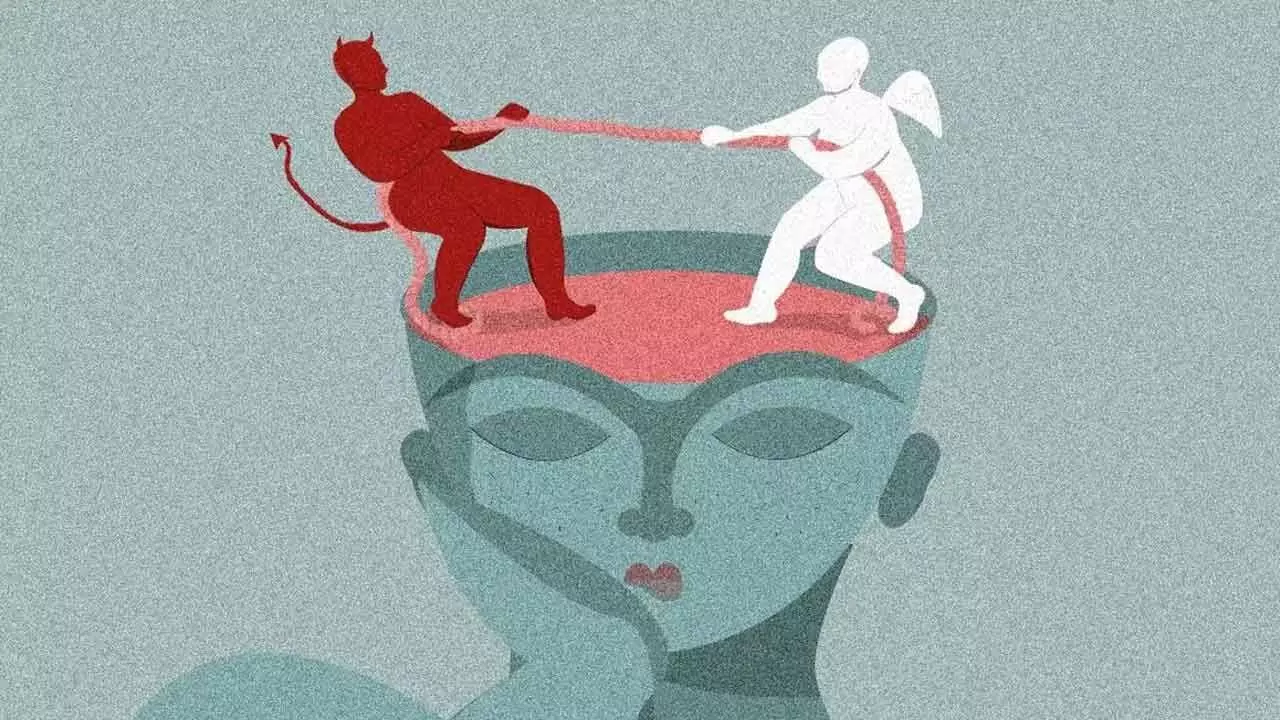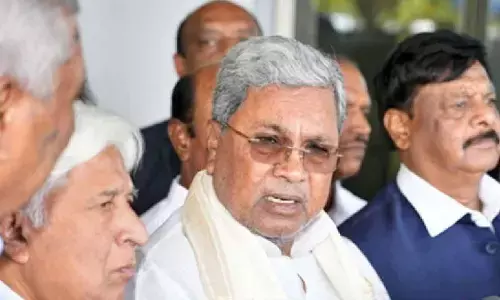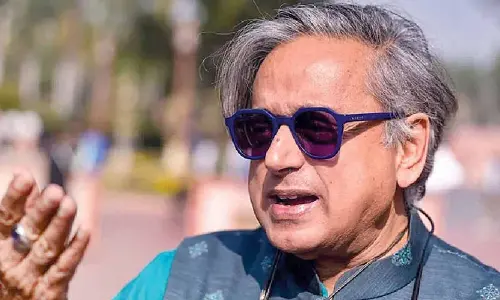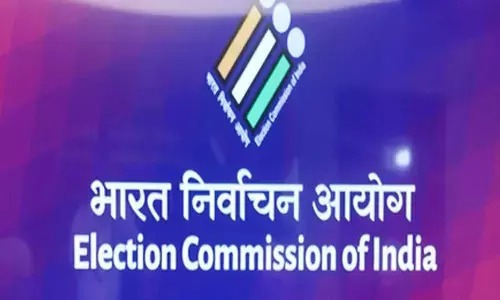The Twin Malaises Of Modern India: Moral Atrophy & Mental Mediocrity

As the generation that let the nation go astray, we also have the responsibility to lead its moral renaissance. We must never forget or ignore that, unlike other societies, the moral compass of human life is not an add-on or accompaniment; it is at its very heart and soul. If we allow it to be dysfunctional, it doesn’t truly matter what happens thence. We must not fail to remember that all great civilizations like Rome did not fall by some outside invader, but because of moral decay from within. India is far too perilously close for comfort
India faces many crises and challenges, problems and pitfalls; they are constitutional, political, economic, social, cultural and communal. Underlying and undercutting them all are two afflictions: moral and mental. The first erodes what Ralph Waldo Emerson called ‘integrity of your own mind’, and the second robs us of our élan and self-belief. This is a formidable and fearsome twosome, unique in many ways to India. The twain hold the country in both in thrall and trepidation, and they have whittled and nibbled away the great hope that a free India, in line with its glorious heritage, will be a buoy and an anchor for a morally adrift humanity. India, too, needed to shed its colonial baggage and rediscover its spiritual roots and be a nation-state like none else. Both hopes have been shattered since then.
Moral Malaise
India’s moral atrophy manifests in myriad ways: malnourishment, malfunctioning, meltdown, decay, decadence, insensitivity, indifference, carelessness, callousness, turpitude, etc. Essentially, the very soil of India that nourished a culture of piety and sacredness became an arena for pleasure satiation by any means, and profiteering at any cost. India was in such economic plight that development became an overriding priority. Prolonged life under alien rule undermined people’s self-belief and spiritual foundation, and they came to prefer what the Katha Upanishad called the path of preyas (pleasure) to the path of sreyas (goodness). The moral and mystical dimensions of life took a huge hit. Low morals in different degrees have come to encompass all facets, factors and sectors, particularly politics. So many of our ‘representatives’ and leading politicians have either criminal backgrounds, or are on bail for so long that it has become a part of accepted political morality. We are desensitised to recurring violence, lewdness and brutality. Mass media and entertainment are cashing in on that.
In India, money is both the means and end of everything. Our moral ambivalence extends to the government. We vie with each other to denounce corruption in government, but we are too willing to cut a deal to get undue favors or jump the queue, not only to escape harassment. We want the government to do its duty without us doing our duty. We distrust the rulers we elect and create extra-constitutional bodies like Lok Pal to keep a watch on them and then mothball them. Chanting on taxes is almost across-the-board and is mentally insulated from morality. A moral billionaire might be an oxymoron but such a person, is socially freed from all moral norms. No one thought there was anything vulgar when one of them brazenly spends thousands of crores for a pre-marital extravaganza including “a feast which even Nero might have thought a little over the top.” Here again the fault was not of billionaire. It is the condescending moral apathy with which way we viewed. Such things, less in scale, happen all the time. The rise of technology has also loosened the moral strings. It is also having a profound impact on families and personal relationships and professional ethics. Time-tested traditional values and family bonds are wilting. In today’s India, what happens the very opposite of what Martin Luther King Jr said, “the arc of the moral universe is long but bends towards justice.” If there is one thing that defines India, it is injustice.
As for spirituality, India was once renowned as the ‘land of spirituality’, home to one of the greatest civilizations, and to four major religions. For generations, a profound sense of transcendence permeated every aspect of Indian society. Religion was viewed as a path to practice spirituality. It is now Janus-like. On the one hand, it occupies a huge space in private and public life, albeit for the wrong reasons; at the same time, it is widely misused and has become a serious source of social unrest. The very antithesis of the soul of spirituality — materialism and consumerism — have become the mainstay of the Indian mind space. What is so heart-rending is that it was India that gave, as Annie Besant, said, “the word of dharma to the world.” It is the same society that has become culturally a kind of a ‘clumsy cousin’ of the worst of western society. Somewhere along the long and cheered history of India, our dharmic roots have been uprooted.
In order to rekindle the spirit of morality and spirituality in India, and to move from apathy to empathy, we need to adopt a four-pronged strategy: (1) Even in the current age in which the moral line between the Janata and the Netas is blurred, what Lord Krishna told Arjuna in the Bhagavad-Gita holds true: Whatsoever a great man does, that other men do; whatever he sets up as the standard, that the world follows. Our leaders must lead by example; (2) Put into effect the concept of swadharma. It means that everyone, from the Prime Minister to a plumber must do their assigned duty to the fullest of one’s capability and without compromising integrity. (3) Operationalise the aphorism “Nara Seva, Narayana Seva,” which means, ‘Service to a human is the same as service to the Divine’. (4) We should imaginatively draw upon relevant ideas and practices from all religions. One of them is Kar seva from Sikhism. It means work for humanity with devotion, honesty, faith and with spirit of sacrifice and without any greed or lust or egoism. In Islam too there is a similar exhortation. In the Quran, Allah says: “Help one another in acts of piety and righteousness. And do not assist each other in acts of sinfulness and transgression”. From Buddhism, we can benefit by borrowing its celebrated Astangika-marga, the Eightfold Noble Path — right understanding, thought, speech, action, livelihood, effort, mindfulness, and concentration — as a guide for daily life.
Reviving the spirit of dharma is essential to attain one of India’s primal imperatives: to foster inter-faith amity. The intent and essence of what dharma synthesises is not only a critical component of the Indic religions but also of Islam. Scholars say that the Arabic word ‘Din,’ which appears in the Quran 98 times with different connotations, is similar to dharma. Some others posit that the word ‘Huquq’ comes closer. Whatever, this opens the door to innovatively and imaginatively use the genus of dharma as a bridge between the major religions.
As the generation that let the nation go astray, we also have the responsibility to lead its moral renaissance. We must never forget or ignore that, unlike other societies, the moral compass of human life is not an add-on or accompaniment; it is at its very heart and soul. If we allow it to be dysfunctional, it doesn’t truly matter what happens thence. We must not fail to remember that all great civilizations like Rome did not fall by some outside invader, but because of moral decay from within. India is far too perilously close for comfort. For far too long, we have been staring at the abyss of evil, and we run the risk, as Nietzsche warned, of the abyss staring back at us. We are all so much a part of that creeping moral meltdown to notice it. This moment in time is particularly pertinent, as a contemporary guru pointed out, when spirituality is all but absent and — we may add — when menta mediocrity rules the roost. Since the two malaises work complementarily, we need also to work out a way to loosen their grip simultaneously.
(Writer is a retired IAS officer of 1958 batch)















